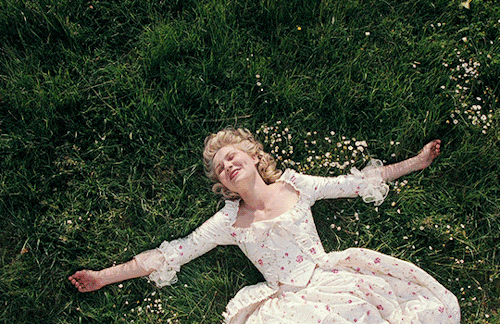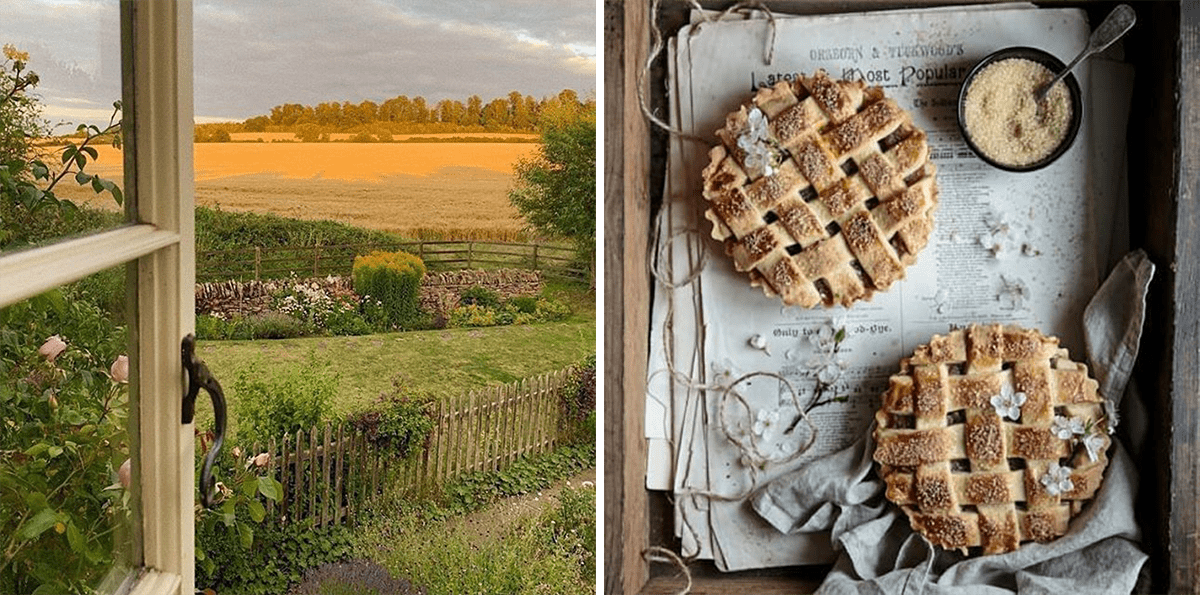Cottagecore: the new consumer revolution

We may still be months away from going out out, but the days of staying in look to be numbered. And there are already signs of a collective hangover from this enforced restraint: consumers intoxicated by the simple life.
When 5G launched in the UK last May, businesses prepared for a future of virtual reality and robots. A year on, and COVID-19 has instead ushered in a surprising return to a bygone era; jigsaw puzzle sales have increased by 370%, paperbacks have made a novel return, and bicycle sales have switched into high gear.
This revisiting of genteel pursuits may seem romantic, but the repercussions of the pandemic on what people buy, how they spend and where they work will not be fleeting. These aren’t halcyon days and businesses must prepare to avoid the wilderness years ahead.
A campagne lifestyle
Across the Channel, an 18th century queen once sought solace from the constraints of the royal court. Marie Antoinette found refuge in the Hameau de la Reine: a rural idyll tucked away in the grounds of Versailles. Within this tableau of quaint cottages, watermills and orchards, the teen queen played peasant girl and swapped hors d’œuvres for picking apples. Beyond the gilded palace gates, however, peasant life was not so golden. Unemployment was rife, malnutrition was high and anger was growing. And we all know what happened next.

Today, people are still losing their heads, at least figuratively.
Cottagecore is a lifestyle movement that passionately fetishizes sylvan life. Think cross-stitch by candlelight, patchwork quilts and making jam; wildflowers, wicker baskets and picnics in dappled sunlight. The fresh linen and lattice pie crusts romanticise DIY, yet, it is only through digital intrusion that this analogue existence can flourish. Cottagecore’s rustic western sensibilities predate the first known case of COVID-19 in East Asia – it can be traced back to Reddit in 2018 – but began to spread dramatically online in January this year. Google Trends is witness to its spike in popularity, and Tumblr has seen cottagecore content increase by 153%.

A yearning for going off-grid is not new. Cabin Porn has been posting scenic hideaways on Instagram for years, the backwater boltholes followed by half a million people. The book Norwegian Wood: Chopping, Stacking, and Drying Wood the Scandinavian Way was a 2015 bestseller. What is new, however, is to suddenly be able to experience this lusted-after isolation – and, paradoxically for many of us, having to do so trapped inside urban sprawls a world away from the great outdoors.
Out of the woods
As the UK hesitates in venturing back outside, data firm Nielsen believes businesses are in store for three ‘horizons’ during the economy’s recovery: Rebound, Reboot and Reinvent. These phases are not a protracted return to normal; there is no going back. COVID-19 has wrought massive devastation not just on peoples’ bank balances and security, but also upon their psyches. For some, the toll has been intolerable.
Companies must now anticipate a shift in their staff and their customers. Research by McKinsey shows that UK consumers are some of the least optimistic in the world about economic recovery, correlating with an intention to decrease their household spend across all categories. Four in 10 people say that Covid-19 will fundamentally change the way they shop, says a new EY study. Accenture’s findings indicate buying behaviours now lean towards more sustainable choices and an end to fast, throwaway purchases. So, even when the mortal threat to health has passed, businesses will still be at risk if unprepared for what’s next.
- We can expect to see the homebody economy take up residence, with people choosing to live, work, eat and entertain at home even after lockdown. Shopping baskets will be lighter as consumers spend more cautiously, considering cheaper alternatives or opting to make do with what they already have.
- The pandemic has dramatically disabled global supply chains, and previously slick operators have found themselves hobbled under pressure. Through the debris of disorganisation, local producers and micro businesses have navigated to find a wealth of new customers. The guarantee of supply and the desire to support their community has fostered willingness to leave the big brands behind.
- The relationships with some brands have undoubtedly suffered, their lack of empathy and care for their customer exposed. For other companies, their ability to help during dire circumstances and put people ahead of profit has forged huge loyalty.
A new way of thinking
These behaviours aren’t so much a return to the provincial or pastoral, but rather a recalibrating of what is essential and necessary to survive and – only then – to thrive. Few of us have the luxury to spend our days lazing under thickets or by babbling brooks, but the values of cottagecore are no daydream. Cottagecore is an aesthetic, but it is also a mindset.
“In the cottagecore universe, there are no phones pinging constantly with updates, no urgent work emails, no evenings spent responding to the onerous demands of a tyrannical boss,” explained the New York Times in a March 2020 feature. “In fact, there is no labor beyond domestic, and workaday tasks are completed with a gauzy sense of fulfilment. …Cottagecore attempts to assuage burnout with a languid enjoyment of life’s mundane tasks.”
The modern workplace may not offer such hazy tranquillity, but remote working has proved to many that there are ways for business to be fulfilling rather than all-consuming, and with a harmony between colleagues and customers.
“I like good strong words that mean something”
– Louisa May Alcott
More people want to be self-sufficient and satisfied with what they already have. More want to buy things that will last and make a difference, and not diminish with every new release. More want to invest in their community, whether it’s within their neighbourhood or the coming together through practice and passion. More want to buy from brands that nurture and care, and mend and sew rather than discard and burn.
On Boxing Day last year, Greta Gerwig brought Little Women to the silver screen, Its twee coming of age story set against bloody cannon fire as the Union and the Confederates took to arms. Months later, the skies above British towns and cities were lit up from more than seventy phone masts ablaze by activists misplacing blame and declaring war on 5G. Cottagecore’s rose-tinted nostalgia is in stark relief with today’s HD reality, but beneath the sepia tones lies bold new views. People are looking to the future with open eyes. They may not be bearing pitchforks but they mean business.
Vive la révolution!

